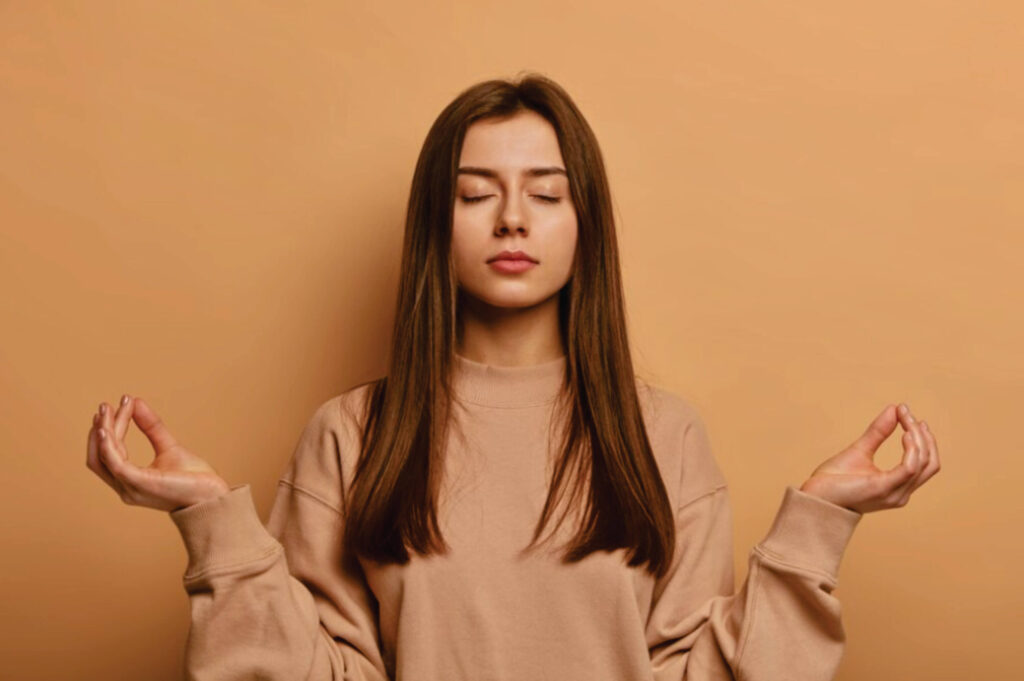In today’s fast-paced lifestyle, many rely on caffeine and sugar to stay alert and productive. However, caffeine and sugar influence anxiety in ways that aren’t always obvious. While these substances offer a temporary boost, they can also disrupt mental well-being, particularly for those prone to stress. Understanding their effects allows for better dietary choices and improved emotional balance.

How Caffeine Affects Anxiety
Caffeine is a powerful stimulant that impacts the central nervous system. It works by blocking adenosine, a neurotransmitter responsible for relaxation and sleep. This leads to increased alertness, a faster heart rate, and the release of stress hormones such as cortisol.
Moderate caffeine intake may enhance concentration, but excessive consumption has been linked to heightened anxiety. Research published in the Journal of Psychopharmacology indicates that individuals who consume large amounts of caffeine are more likely to experience panic attacks and increased nervousness, especially those predisposed to anxiety (Journal of Psychopharmacology, 2019).
Signs That Caffeine May Be Worsening Anxiety:
- Feeling restless or jittery
- Racing thoughts
- Difficulty sleeping
- Increased heart rate
- Persistent worrying
- Frequent mood shifts
I personally avoid coffee, opting instead for green tea due to its milder effect. However, my colleagues rely heavily on coffee to get through the workday. Many admit that, despite feeling more awake initially, they often experience restlessness and difficulty sleeping. Reducing caffeine intake, or switching to low-caffeine drinks such as herbal teas, can help ease anxiety symptoms. Additionally, gradually decreasing caffeine intake can prevent withdrawal effects like headaches and fatigue.
The Impact of Sugar on Mood Stability
Refined sugar plays a significant role in blood sugar fluctuations and emotional well-being. When consumed, it causes a rapid spike in glucose levels, leading to a short-lived burst of energy. However, this is quickly followed by a crash, resulting in fatigue, irritability, and increased anxiety.
A study published in the American Journal of Clinical Nutrition found a strong connection between high sugar intake and mood disorders, including heightened anxiety and depression (American Journal of Clinical Nutrition, 2017). Additionally, excessive sugar consumption promotes inflammation in the body, which may worsen mental health symptoms.
Ways to Minimize Sugar-Related Anxiety:
- Reduce intake of processed sugars and opt for natural alternatives.
- Eat more whole foods such as fruits and vegetables to maintain steady energy levels.
- Balance meals with protein, fiber, and healthy fats to prevent blood sugar spikes.
- Use natural sweeteners like honey or dates instead of refined sugar.
- Track sugar consumption and its effects on mood to identify personal triggers.
On a health forum, I found a discussion where one user described quitting refined sugar for a month. They noticed fewer mood swings, improved focus, and reduced anxiety. Their experience supports research that suggests minimizing sugar intake can enhance emotional stability.
How Caffeine and Sugar Together Worsen Anxiety
Many common beverages and snacks combine caffeine and sugar, intensifying their effects. Energy drinks, sugary coffee beverages, and sodas create a cycle of stimulation followed by energy crashes, leading to mood instability and fatigue.
Effects of Consuming Caffeine and Sugar Together:
- Raises cortisol levels, increasing stress sensitivity
- Causes blood sugar fluctuations, leading to emotional instability
- Encourages dependency, making it difficult to maintain balanced energy
- Can lead to dehydration, which may worsen anxiety symptoms
- Disrupts sleep, reducing the body’s ability to recover from stress
A colleague of mine consumes energy drinks daily to stay focused at work. However, they frequently complain of feeling restless in the afternoons, experiencing energy crashes, and struggling with sleep. This cycle shows how caffeine and sugar together can worsen anxiety-related symptoms.
Understanding Personal Sensitivities to Caffeine and Sugar
People react differently to caffeine and sugar. Some tolerate them well, while others experience negative effects even with small amounts. For instance, some individuals can drink multiple cups of coffee without issues, while others may feel jittery after just one. The same applies to sugar—certain people experience rapid mood swings after consuming sweets, while others feel no noticeable impact.
One user on a health forum shared their experience of cutting back on caffeine. They had suffered from frequent anxiety episodes and decided to switch from coffee to herbal tea. After a few weeks, they noticed a significant reduction in nervousness and improved sleep quality. Stories like these highlight the importance of identifying personal tolerances and making adjustments accordingly.
Factors That Influence Sensitivity:
- Genetics
- Stress levels
- Sleep patterns
- Overall diet
- Daily routines
- Hydration levels
Keeping a food and mood journal can help track how caffeine and sugar affect anxiety. Consulting a healthcare professional or nutritionist can also provide personalized dietary recommendations.
Practical Strategies to Reduce Anxiety Linked to Caffeine and Sugar
If you want to lower anxiety without eliminating caffeine and sugar entirely, these tips may help:
1. Reduce Intake Gradually
Abruptly cutting caffeine and sugar can cause withdrawal symptoms like headaches and irritability. Slowly lowering consumption allows the body to adjust more smoothly.
2. Choose Healthier Alternatives
Opt for herbal teas, decaffeinated coffee, or naturally sweet foods such as berries and dark chocolate.
3. Balance Blood Sugar Levels
Eating protein, fiber, and healthy fats with meals prevents sudden blood sugar fluctuations.
4. Stay Hydrated
Dehydration can cause symptoms similar to anxiety. Drinking enough water throughout the day supports steady energy and mood balance.
5. Prioritize Sleep and Stress Management
Reducing caffeine and sugar is just one aspect of managing anxiety. Establishing good sleep habits, exercising regularly, and practicing relaxation techniques like meditation also help.
6. Use Mindfulness Techniques
Practices such as deep breathing, yoga, and mindful eating can help regulate stress and reduce dependence on stimulants.
7. Monitor Hidden Sources of Caffeine and Sugar
Be mindful of processed foods, which often contain hidden caffeine and sugar that can contribute to mood swings.
Final Thoughts
While caffeine and sugar offer temporary energy boosts, their long-term effects can increase anxiety and disrupt mood stability. Research has shown that excessive intake of these substances is linked to heightened stress levels and emotional imbalances (National Institutes of Health, 2021).
By understanding how caffeine and sugar influence anxiety, individuals can make better dietary choices. Moderation, mindful consumption, and lifestyle adjustments can significantly reduce anxiety-related symptoms. Making small changes—such as switching from coffee to green tea, choosing whole foods over processed snacks, and staying hydrated—can lead to noticeable improvements in mental well-being.
The Power of Solitude: Why Alone Time is Essential for Mental Well-Being
Psychosomatics: How Emotions Affect Physical Health

I’m Victoria, the creator behind Eva My Balance. Passionate about beauty, wellness, sustainable living, and mindful self-care. My mission is to inspire you to live consciously and beautifully—inside and out.


